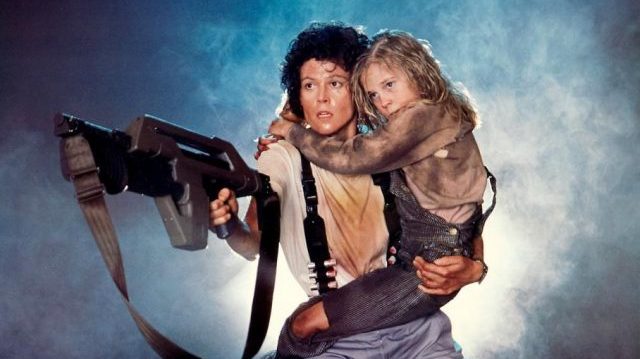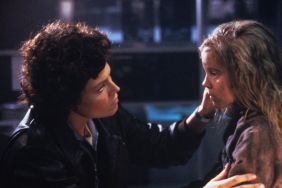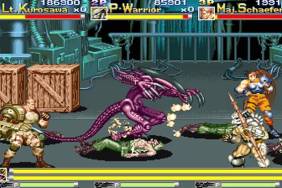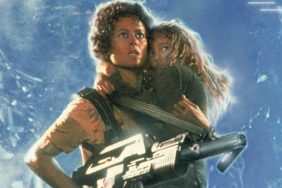8 Ways Ellen Ripley’s Arc in ‘Aliens’ Represents Unrivaled Maternal Instinct
Mother’s Day is upon us; an occasion on which we celebrate mothers and their gargantuan influence on society. As we honor motherhood’s badassery, it seems only fitting that we also pay homage to one of the greatest maternal protagonists of all-time, Ellen Ripley (Sigourney Weaver). First introduced in Ridley Scott’s 1979 classic, Alien, Ripley isn’t as formidable a force as she is in its sequel in 1986, James Cameron’s action-packed Aliens.
If Alien is a twisted contemplation of the horrors of childbirth (which some critics will argue) then Aliens is a celebration of motherhood. Our lead heroine is thrown into a dangerous situation armed with nothing but her instinct and experience. She’s not an expert or a soldier but she still manages to succeed where others do not. Ripley’s arc in Aliens reveals in her kick-ass maternal instinct. The following aspects of said arc cement her as the undisputed matriarch of her genre.
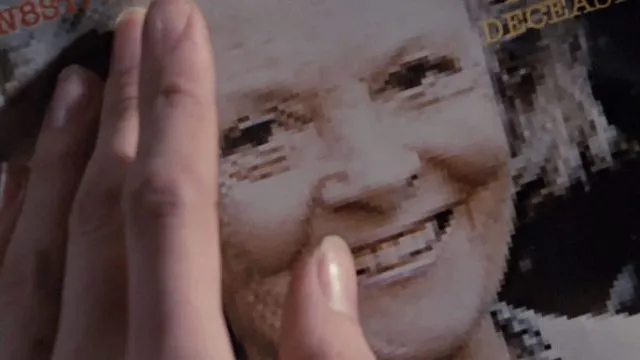
1. She loses her traditional role as a mother
Following the events of Alien, Ripley and Jonesy the cat are the only survivors of the Nostromo. She has been in stasis for 57 years before being rescued by the Weyland-Yutani Corporation. If all that isn’t traumatic enough, in a deleted scene (which infamously SHOULD NOT have been deleted) we find out that Ripley had a daughter who died while she was asleep. So, not only did Ripley lose her crew, has PTSD, and is viewed by everyone as that crazy cat lady but she also feels as if she has lost a daughter. In more ways than one, this motivates Ripley moving forward.
RELATED: CONFIRMED: Taika Waititi to Co-Write/Direct New Star Wars Film!
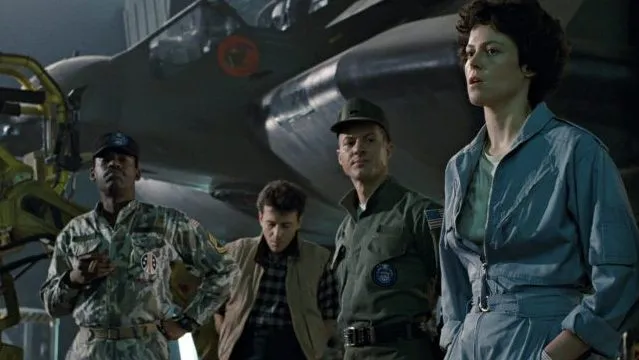
2. She steps into a role as an advisor/moral compass
The Weyland-Yutani Corporation is skeptical of Ripley’s re-telling of the events of the first film. She implores them to believe her, stressing the fact that “if one of those things gets down here” it will be the end of all their paperwork and trivialities. They appear to write her off. Nevertheless, Burke and Gordon ask Ripley to come with them back to the exomoon LV-426 (where everything went down in Alien). Out of a sense of duty—to help advise them to destroy the creatures—she goes with them despite her initial reluctance. In Aliens’ testosterone-filled world of action and gore, Ripley grounds the film—her decisions are always the most rational and ethical.
RELATED: CS Soapbox: Hulu’s Devs Warms Up The Multiverse For Marvel
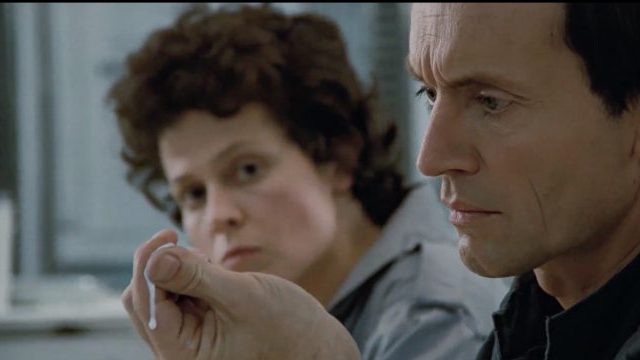
3. She doesn’t like androids
Who would? Artificial intelligence/life is an insult to mother nature—the beauty of naturally occurring maternal bonds and motherhood. Also, an android did sort of lose its shit and betray everyone in the first film…so of course she doesn’t trust the android Bishop.
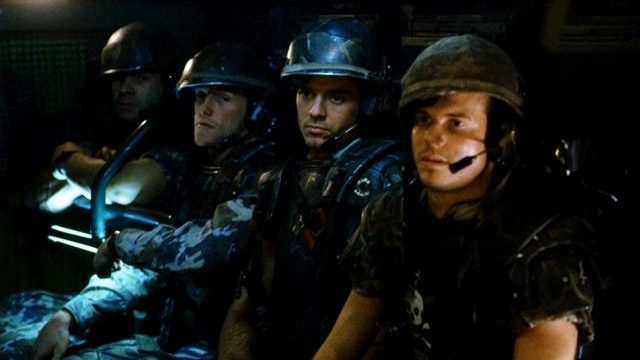
4. She’s surrounded by clueless men
Pretty much everyone except for Corporal Hicks comes off as a stereotypical jock/soldier. Cue working-class single mom metaphor.
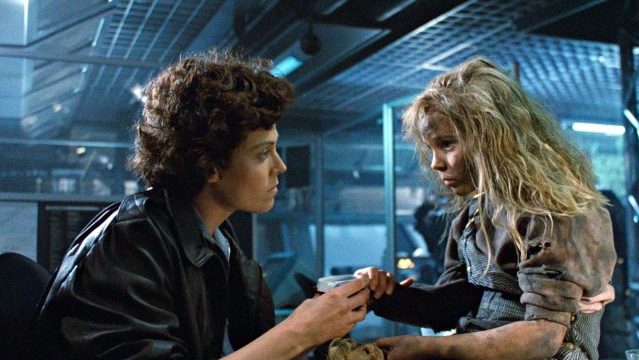
5. Finding Newt
After finding the colony Hadleys Hope deserted, Ripley and company find a young girl named Rebecca aka Newt as the sole survivor. Ripley’s relationship with Newt drives the film from this point on—Ripley’s maternal instinct takes over when the two meet. Ripley both relate to Newt (who lost her parents and brother/a former life) and embodies a surrogate mother. Ripley is the one who gets Newt to clam down: she gives her hot chocolate, cleans her up, and gets her to talk. She is then constantly preoccupied with Newt’s well-being while simultaneously being the least useless person in the crew.
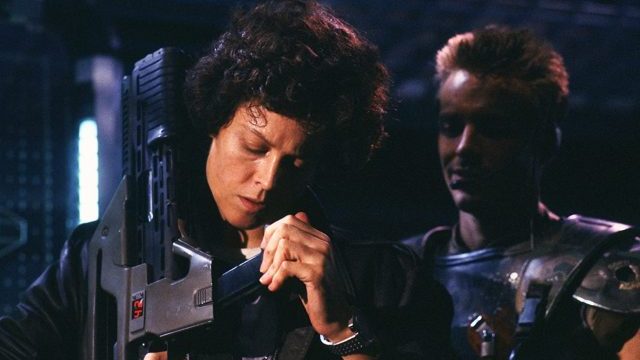
6. She quickly becomes the leader when shit hits the fan
In the center of the station, the Marines find all of the colonists cocooned. They kill an infant alien, provoking multiple adult aliens. As people start dying, Colonial Marine Lieutenant Gorman freezes and Ripley assumes command of the crew. She drives a personnel carrier into the alien nest, saving Hicks, Hudson, and Vasquez. All eyes then turn to Ripley as everyone now respects her fully. Hicks heads her advice and shows her how to operate a rifle/grenade launcher:
Ripley: (pointing to a part of the gun Hicks is showing her) What’s this?
Hicks: That’s a grenade launcher, I don’t think you want to mess with that/
Ripley: You started this. Show me everything. I can handle myself.
Hicks: (chuckles) Yeah, I noticed.
Momma Ripley isn’t fucking around.
RELATED: CS Soapbox: Supernatural Will Do What GoT & Star Wars Could Not—End Well
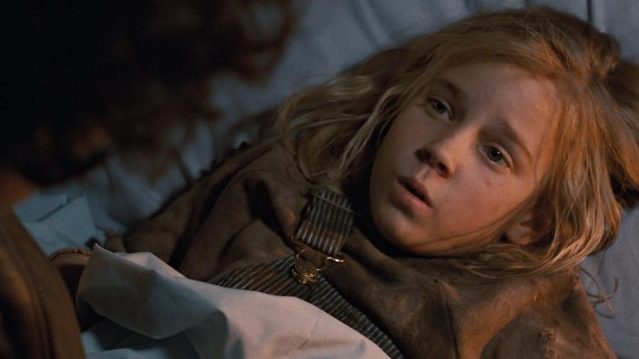
7. She Tucks Newt into bed like the OG mother that she is
Perhaps a cornerstone of being a good parent is knowing how to tuck a child into bed. While this main sound simple, it requires a great deal of compassion, care, and intellect. Perhaps some of the most memorable conversations in film have happened courtesy of a solid tuck-in (think “I love you 3000“). No one is better at this than Ellen Ripley. Who else can reassure, comfort, and prepare a child for bedtime after a bunch of people have just been slaughtered? Ripley is honest and true, making even the viewer feel safe…for a time.
Newt: My mommy always said there were no monsters – no real ones – but there are, aren’t there?
Ripley: Yes, there are.
Newt: Why do they tell little kids that?
Ripley: Most of the time it’s true.
RELATED: CS Soapbox: Why Star Wars Needs Taika Waititi
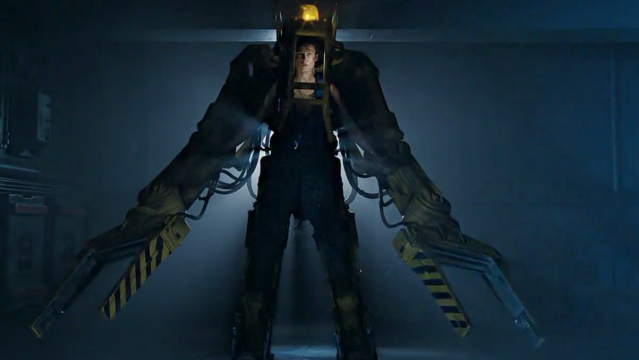
8. Ripley v Queen Alien
After Ripley rescues Newt from the hive and destroyed the queen Xenomorph’s eggs, the two escape with Hicks and Bishop aboard the dropship. Just when they are in the clear on U.S.S Sulaco, they are ambushed by one pissed off Xenomorph queen (who hitched a ride). Now, it’s mother versus mother. In one corner you have Ripley protecting Newt and in the other corner you have the queen avenging her hive—in a way, you understand both mothers.
Ripley “suits up” utters her famous line (“get away from her you bitch”) and battles the queen, eventually throwing her through an airlock into space. Newt rushes into Ripley’s arms exclaiming “mommy” while Bishop (who had been ripped in two by the queen earlier) says, “not bad for a human,” regaining her role as a mother—completing one badass character arc.
Ripley’s story accentuates the idea that being a mother is about more than blood (pun intended). But Aliens isn’t just about being a mother. Like all great survival flicks, Aliens is about persevering individual welfare and the welfare of others. The betterment of humanity. The Alien franchise in general (which heavily features the theme of motherhood throughout) is about the future. What’s more concerned with humanity’s future than the innate and unrivaled instinct attached to raising/protecting a child?
Happy Mother’s Day, Ellen Ripley.
